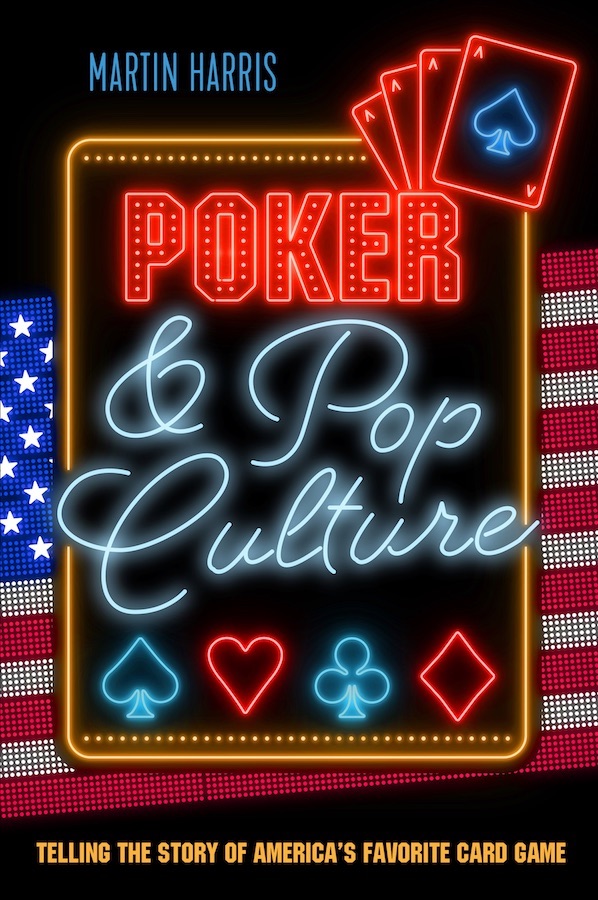Ceci n’est pas a coin flip
 Noticed this morning that the Poker Grump had directed us to an interesting article that explained how coin flips -- not the ones in poker, but real tosses of a coin -- are not, in fact, the absolute “50-50” propositions they are usually cited as being.
Noticed this morning that the Poker Grump had directed us to an interesting article that explained how coin flips -- not the ones in poker, but real tosses of a coin -- are not, in fact, the absolute “50-50” propositions they are usually cited as being. The article, which appears on the website called The Big Money (via Slate), explains that “research into coin flips has discovered that the laws of mechanics determine the outcome of coin tosses: The startling finding is they aren’t random. Instead, for natural flips, the chance of a coin coming up on the same side as it started is about 51 percent.”
Further explanation follows, including a bit about methodology and consequences. As far as the latter goes, it really doesn’t matter much that a coin is slightly more likely to end up on one side or the other if no one knows which side of the coin is right side up prior to the flip. In other words, if one is wagering on the outcome, it wouldn’t do for the person doing the flipping to be the one calling heads or tails, since that person could have an advantage by knowing which side of the coin was up prior to the flip, and thus which way the coin was slightly more likely to fall.
 The article reminded me of a section in a book called Confessions of a Crossroad Gambler written by Gentleman Jack Newton. Newton is one of those old-timers who spent about a half-century (from the Great Depression on up through the 1970s) gambling all over creation -- in the United States, Mexico, the Caribbean, Europe, and South Africa. Last spring when I was visiting Vegas CK (a.k.a. the BWoP) gave me a copy of the book, which was published some time in 2008.
The article reminded me of a section in a book called Confessions of a Crossroad Gambler written by Gentleman Jack Newton. Newton is one of those old-timers who spent about a half-century (from the Great Depression on up through the 1970s) gambling all over creation -- in the United States, Mexico, the Caribbean, Europe, and South Africa. Last spring when I was visiting Vegas CK (a.k.a. the BWoP) gave me a copy of the book, which was published some time in 2008.Newton includes several “how-to”-type discussions of various cheats, including a section on “Coin Flip Control.” There he describes how he taught himself as a teenager to flip coins so they appeared to be turning over when in fact they weren’t. They’d wobble, but wouldn’t tumble, and thus he could know how it would land. Wouldn’t work on concrete or some other hard surface, but would do best on dirt or even wood floors. As Newton explains, “I knew if I could control my coin flip on some fraction of my throws, I would win at the end of the day.” In fact, it was better only to try coin flip control now and then, as doing it too often would attract notice.
Thus would Gentleman Jack exploit his edge even further as the flipper of the coin, not settling for the apparent 51-49 advantage physics already gave him.
The article also put me in mind of so-called “coin flips” in poker, of course, almost all of which also are not exactly 50-50 situations. For example, let’s say you’re in a no-limit hold’em tournament and it is still early -- the antes haven’t kicked in. You lost some chips during the first couple of levels are looking to double up right now. The table folds to you sitting in the small blind with

 and you raise all in. Your neighbor in the big blind is holding
and you raise all in. Your neighbor in the big blind is holding 
 and decides to call. According to Two Dimes, he’s 49.78% to win, you’re 49.67% to win, and there’s a 0.56% chance the hand will end in a tie.
and decides to call. According to Two Dimes, he’s 49.78% to win, you’re 49.67% to win, and there’s a 0.56% chance the hand will end in a tie.So not quite even money, but essentially so. Each player is putting exactly half of the money in the middle, and each has just about the same chance of winning the whole pot. A coin flip.
But it’s not a coin flip. And I’m not just talking about the slight edge one hand has over another. You pushed all in first, thus forcing the big blind to decide whether or not to call. There’s a chance he’ll fold, and you’ll win his blind. A pittance, sure, but there’s some likelihood -- some percentage, perhaps quite high -- that he ain’t gonna gamble with his ten-nine suited here.
So there’s an additional advantage afforded to the person who acts first here -- sort of like the one enjoyed by the guy flipping the coin (as the article explains), though perhaps greater than just an extra 1%. In other words, in poker the relative willingness of players to take a roughly 50-50 gamble is a factor that affects the “coin toss.” Or, to be more exact, whether the coin gets “tossed” at all.
Further evidence, I suppose, that poker is not strictly gambling -- is not ever precisely like betting on coin flips, not even metaphorically.
Labels: *shots in the dark, BWoP, Confessions of a Crossroad Gambler, Gentleman Jack Newton, Poker Grump













4 Comments:
Once again you have pulled together a funny, interesting, readable piece out of streams of poker aether. That's why I keep coming back.
Sorry we did not get to hang out a bit at the WSOP, you were one busy fella.
You could make a comfortable living with that information, if you could wager 10- or 20-million times a year on the toss of a coin. For a buck a toss. And you always get heads. Tho the jangly sound of the coin hitting the ground over and over and over and over again would eventually grow tiresome, maybe even irritating.
Wow - you've got my mind spinning after reading that great post. Some heavy concepts there that need digesting. What about the cards of other players at the table? This doesn't affect the calculation of the probabilities as well?
even if a coin flip for 80/20 in my favour i'd still never fkin win one!
Post a Comment
<< Home